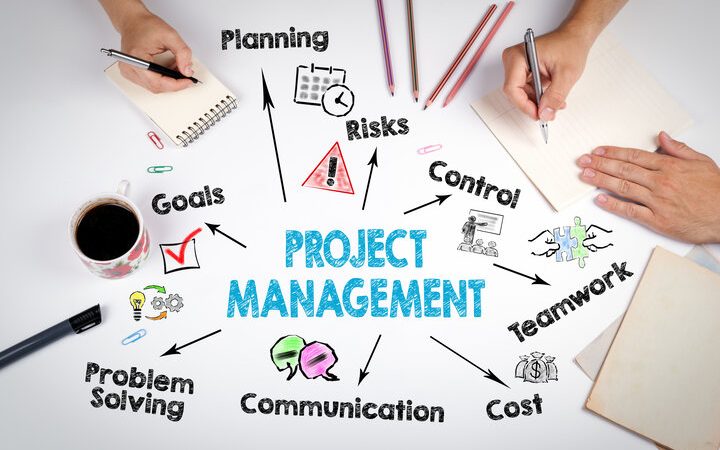How To Organize The Perfect Conference

Organizing a conference is an extremely difficult task. This is especially the case when there are so many variables and factors to take into consideration, with each one affecting another. To make matters worse, not everyone involved in such an event will be as enthusiastic as you are about seeing it succeed.
This brings us to the first of 10 key steps on How to organize the perfect Conference:
Table of Contents
1) The Agenda
The agenda needs to be set out as far in advance as possible (at least two months before). With this and any subsequent meeting agendas, care must be taken that they allow for enough discussion time and decision making without getting too bogged down or falling behind schedule.
2) Invitations & RSVPs
Ensure there is a cut-off date for receiving RSVPs. At that point, you can then move on to sending out an agenda and any necessary materials (such as documents).
3) Marketing & Promotions
Start promoting your conference early – six months before is ideal – with a good amount of time given over to marketing the event. Such promotions should be repeated regularly up until it begins, with announcements at least three times a week. You do not need to spend money on advertising but rather rely on social media, company newsletters, and word of mouth.
4) Room Booking
Room bookings need to be made as early as possible so as to avoid any last-minute problems or conflicts which might arise. While there are limitations on the number of rooms available through the conference organizers, there are usually a few alternative venues to choose from.
5) Audio-visual Equipment
Ensure that any necessary audio-visual equipment is booked as soon as possible and that all technicians involved know precisely what they need to do on the day. You will certainly want at least two laptops, one for presentations and another for visual aids. A projector should also be arranged if your presentation uses this type of hardware: it can sometimes be brought in by a third party but this adds an element of uncertainty which you should avoid wherever possible. Also, ensure there is wireless connectivity and enough power points to enable each person attending to connect their laptop or tablet.
6) The Food & Drink
Lunch can be provided by the conference organizers (but this does not mean it has to be of poor quality!). Alternatively, if there are catering facilities at your venue you can arrange for lunch to be brought in. Be sure that there is enough food and drink available throughout the day, giving people the chance to take a break should they need one.
7) Pricing & Payment
Price your conference according to what you offer- while some might see organizing conferences as an opportunity to make money, this should always come secondary to providing value for attendees. While free events can work well in certain situations, bear in mind that if people do not perceive any benefit from attending then they will not bother coming along. You may also want to consider asking for a non-refundable deposit at the time of booking, with the balance paid at least one month before the event.
8) The Venue
The venue will depend on who your target audience is and what you want to achieve from hosting the conference. For example: if you are organizing a small event then it might not be worth setting up shop in one of New York’s many 5-star hotels – your attendees might feel out of place! At the same time, there is no point picking an inaccessible or too “relaxed” location either as people will still probably miss it.
Finally, try and avoid scheduling such an event so that it clashes with other major conferences as this can lead to a downturn in attendance.
9) Naming Your Conference
Your conference name may not seem particularly important but this is something you want to spend some time on, choosing something that will give an indication of what people can expect from attending. It should also be simple and easy enough for potential attendees to remember it (not everyone has the memory of an elephant!) Finally, make sure it relates back to your target audience and industry: you don’t want it potentially misleading anyone who might attend!
10) Delegating & Managing
Arguably one of the most important steps and one which many event planners and coordinators fail to do properly; delegate. On the surface, it seems unfair not to take on everything yourself but ultimately this will lead to you burning out well before the event- meaning it won’t run as smoothly as you would hope. Instead, try and find employees or colleagues who can take on specific tasks (such as marketing, room bookings, catering, etc.) – the more people working towards the same goal, the better!
Once everyone knows their role it is important to manage effectively– this means making sure deadlines are met and advising if someone is struggling so that their work doesn’t become compromised.
Using an Event Management Platform To Organize The Conference
All the above steps are crucial for running a successful event but can be difficult to manage from start to finish. Luckily, modern-day technology has revolutionized the way we run events and this includes everything from marketing and ticketing through to payments and registration.
A smart Event Management platform should provide a central location where all of your conference information is stored, allowing you to delegate tasks across your team members, set deadlines & reminders as well as offer helpful resources such as templates for invitations.
The main benefits of using an Event Management Platform:
- Track your timeline efficiently.
- Communicate with attendees via push notifications.
- Know exactly who signed up and when.
- Receive automated update reports.
Investing in a reliable Event Management Platform will ultimately save you time, energy, and stress- allowing you to focus on the more crucial aspects of hosting your conference.
Wrapping up
And there you have it: 10 steps to follow when organizing a conference. Whether you are looking to run an intimate business event or a huge international congress, the structure is the same and these guidelines will help streamline things and ensure your event is a success!






